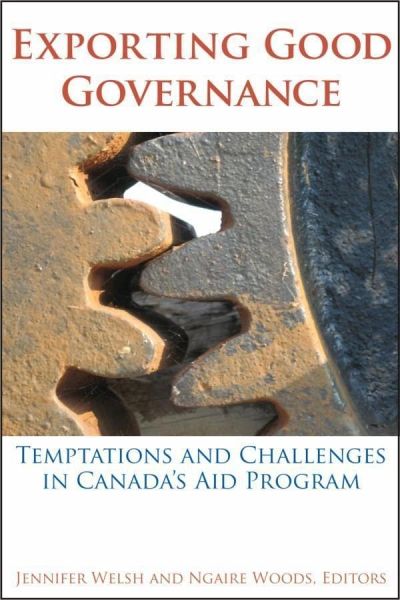Nicht lieferbar

Exporting Good Governance
Temptations and Challenges in Canada's Aid Program
Herausgeber: Welsh, Jennifer; Woods, Ngaire
Versandkostenfrei!
Nicht lieferbar
Can good governance be exported? International development assistance is more frequently being applied to strengthening governance in developing countries, and in Exporting Good Governance: Temptations and Challenges in Canada's Aid Program, the editors bring together diverse perspectives to investigate whether aid for good governance works. The first section of the book outlines the changing face of international development assistance and ideas of good governance. The second section analyzes six nations: three are countries to which Canada has devoted a significant portion of its aid efforts...
Can good governance be exported? International development assistance is more frequently being applied to strengthening governance in developing countries, and in Exporting Good Governance: Temptations and Challenges in Canada's Aid Program, the editors bring together diverse perspectives to investigate whether aid for good governance works. The first section of the book outlines the changing face of international development assistance and ideas of good governance. The second section analyzes six nations: three are countries to which Canada has devoted a significant portion of its aid efforts over the past five to ten years: Ghana, Vietnam, and Bangladesh. Two are newer and more complex "fragile states," where Canada has engaged: Haiti and Afghanistan. These five are then compared with Mauritius, which has enjoyed relatively good governance. The final section looks at challenges and new directions for Canadas development policy. Co-published with the Centre for International Governance Innovation





